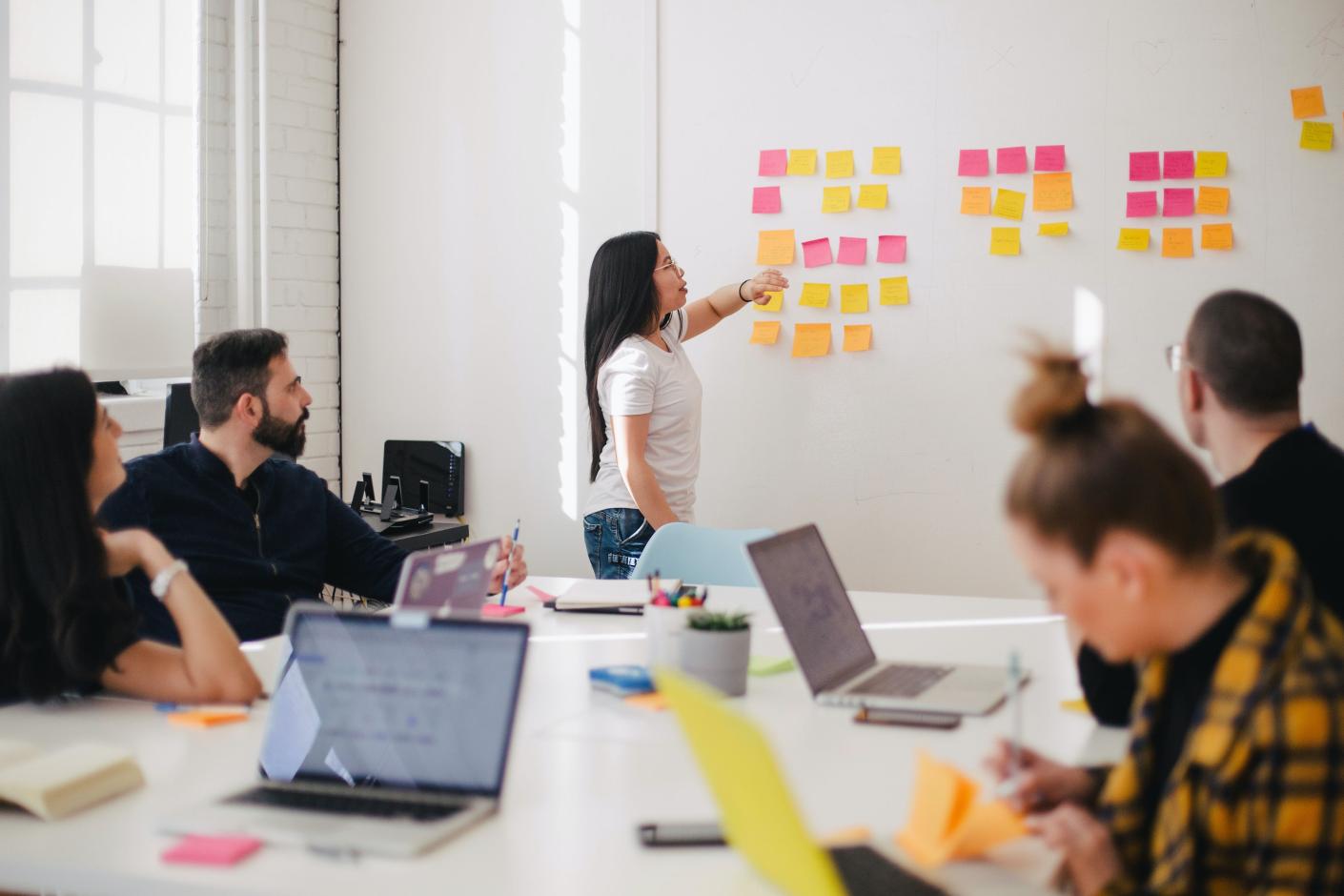SIL Welcomes Summer 2023 PhD Fellows
15 Stanford PhD students join summer 2023 cohort of Stanford Impact Labs Fellowship

There are many reasons to be excited when summer quarter rolls around, but here at Stanford Impact Labs (SIL), none so much as the opportunity to welcome a new cohort of SIL PhD Fellows! This summer, 15 Stanford PhD students will join the SIL PhD Fellowship (previously known as the Summer Collaborative Research Fellowship), an opportunity to pursue solutions-oriented research with Stanford faculty and research labs, engage in training, and build community with students across campus. What brings this group together is a shared motivation to use research to benefit society, and a commitment to developing the skills and knowledge to do so.
In addition to conducting their own research, Fellows engage in weekly training sessions with SIL staff. These sessions focus on topics like understanding social problems, determining the role of research in solving social problems, identifying a pathway from science to impact, building partnerships with organizations outside of academia, practicing co-creation as a strategy for asking the right questions, and developing scientific insights with the potential for uptake.
Throughout, Fellows also explore the skills necessary to make social science research impactful, including communicating with non-academic audiences, designing a research team, and fundraising for social impact research.
This year’s “firsts”
Even as we enter the fourth year of the fellowship, we still get to encounter some exciting “firsts.” After three summers of a virtual program, this is the first time we will hold the fellowship sessions completely in person! As one of the program’s goals is to build community, we’re delighted about this return to gathering on campus.
As an interdisciplinary program, past cohorts have always had a rich diversity of disciplines represented. This summer, our very first SIL PhD Fellows from Mechanical Engineering, Health Policy, and Earth System Science join the cohort:
- Elizabeth Childs, under the mentorship of Allison Okamura, Professor of Engineering and James Landay, Professor of Computer Science, will work with Bay Area high schools to improve the use of augmented reality in chemistry education.
- Ireland Sherrill, under the mentorship of Elliott White, Jr., Assistant Professor of Earth System Science, will seek to support forest conservation in partnership with the Haida Nation in British Columbia.
- Marissa Reitsma, with faculty mentor Joshua Salomon, Professor of Health Policy, will collaborate with the Massachusetts Department of Public Health and the CDC to evaluate and shape integrated service delivery to reduce HIV and hepatitis C virus transmission among people who inject drugs.
While SIL PhD Fellows come from varied academic disciplines, each member of the cohort shares the approach of seeking solutions to a unique, pressing social problem in partnership with organizations outside of academia.
Partnering with government
This summer, several Fellows join research teams working in partnership with governments. At the local level, Hannah Melville-Rea, with faculty mentor Jenny Suckale, Assistant Professor of Geophysics, will explore the potential for community-based flood insurance programs in partnership with San Mateo County in order to strengthen flood resilience in low-income communities.
Other fellows are seeking solutions at the state level: Brendan Moore, under the mentorship of Isaac Sorkin, Assistant Professor of Economics, will partner with the Washington State Employment Security Department to increase unemployment insurance take-up among recently laid-off workers in Washington. Kate Reinmuth, with faculty mentor Heidi Williams, Professor of Economics, will partner with the Texas Higher Education Commission to improve university technology transfer in higher education institutions across the state.
Fellows are also pursuing change at the national level: Andrés Felipe Rodríguez with faculty mentor Katherine Casey, Associate Professor of Political Economy, will work with the Government of Zambia and other local development partners to improve local capacity to manage public infrastructure.
Increasing equity in education
Improving equity within educational contexts also motivates SIL PhD Fellows. Emma Keller, with faculty mentor Farzana Saleem, Assistant Professor of Education, will work to develop tools that better prepare middle school teachers to engage in racial dialogues with their students. Rubén A. González, under the mentorship of Subini Annamma, Associate Professor of Education, will work with soon-to-be first-year K-12 teachers of color to prepare them to incorporate justice-oriented approaches in their teaching and student support. Brandi Cannon-Force, under the mentorship of Janet Carlson, Associate Professor of Education, will partner with Black educators working to make outdoor spaces more inclusive, safe, and community centric.
Working with school districts
Several Fellows will join research teams in partnerships with large school districts. Sadie Richardson, with faculty mentor Sean Reardon, Professor of Education, and as part of The Educational Opportunity Project research team, will work with the New York State Education Department to improve equitable outcomes throughout its school systems. Lily Steyer, with faculty mentor Jelena Obradović, Associate Professor of Education, will work in partnership with the San Francisco Unified School District to evaluate Shoestrings, a preschool program designed to prevent exclusionary discipline among students of color.
Improving systems to support lives
Melanie Shimano, with faculty mentor Mitchell Stevens, Professor of Education, will partner with Stanford University to improve occupational mobility pathways for members of the University’s workforce. Katja Hoffman, under the mentorship of Shoshana Vasserman, Assistant Professor of Economics, will evaluate tools to increase drug price transparency in a large health care system. Joseph S. Mernyk, with faculty mentor Robb Willer, Professor of Sociology, will collaborate with Code for America to increase enrollment in California’s Supplemental Nutrition Assistance Program (SNAP) among eligible individuals.
